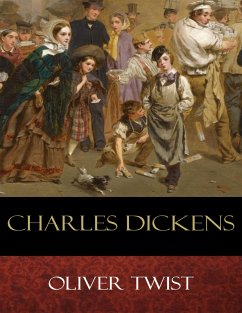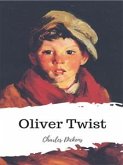Oliver Twist, also known as The Parish Boy's Progress, is the second novel by English author Charles Dickens, first published in 1838.
The story is about an orphan, Oliver Twist, who endures a miserable existence in a workhouse and then is placed with an undertaker. He escapes and travels to London where he meets the Artful Dodger, leader of a gang of juvenile pickpockets. Oliver is led to the lair of their elderly criminal trainer Fagin, naively unaware of their unlawful activities.
The book exposed the cruel treatment of many a waif-child in London, which increased international concern in what is sometimes known as "The Great London Waif Crisis": the large number of orphans in London in the Dickens era.
Oliver Twist is notable for Dickens' unromantic portrayal of criminals and their sordid lives. Oliver Twist is a gloomy book depicting endless villainies of Fagin, who uses orphan kids for criminal purposes. Dickens highlights social injustices in Victorian London through unforgettable characters.
The story is about an orphan, Oliver Twist, who endures a miserable existence in a workhouse and then is placed with an undertaker. He escapes and travels to London where he meets the Artful Dodger, leader of a gang of juvenile pickpockets. Oliver is led to the lair of their elderly criminal trainer Fagin, naively unaware of their unlawful activities.
The book exposed the cruel treatment of many a waif-child in London, which increased international concern in what is sometimes known as "The Great London Waif Crisis": the large number of orphans in London in the Dickens era.
Oliver Twist is notable for Dickens' unromantic portrayal of criminals and their sordid lives. Oliver Twist is a gloomy book depicting endless villainies of Fagin, who uses orphan kids for criminal purposes. Dickens highlights social injustices in Victorian London through unforgettable characters.









